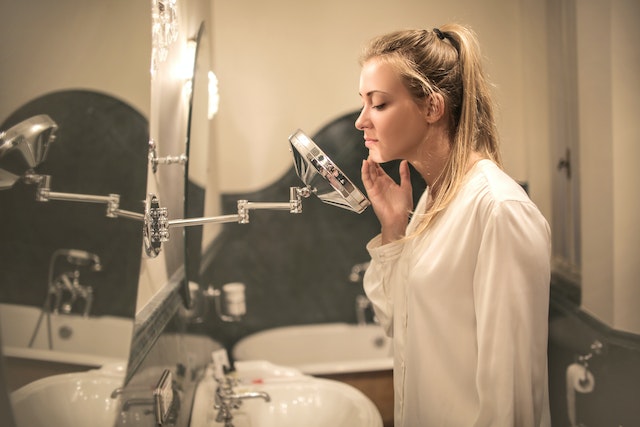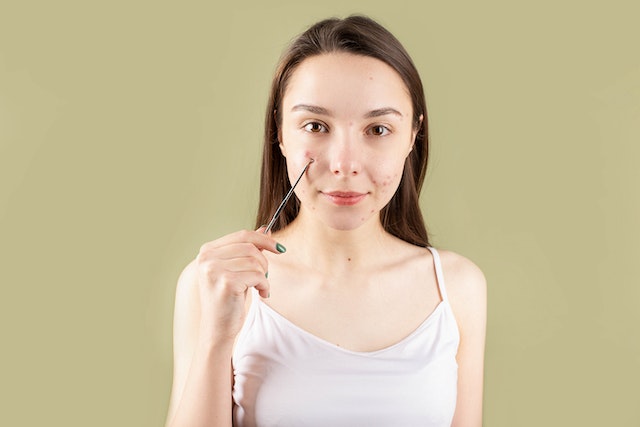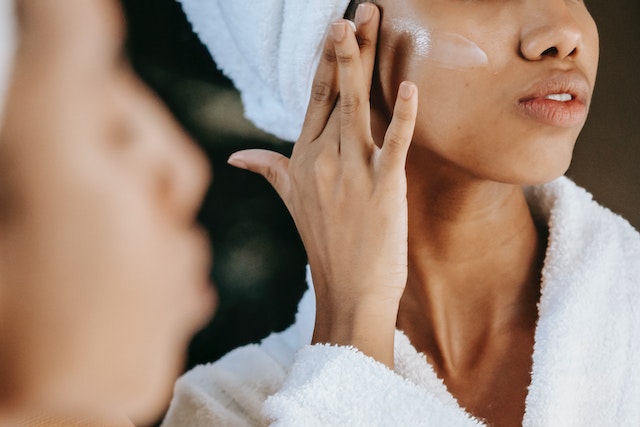3 Most Common Skin Issues & Effective Skin Treatments

Table of Contents
Maintaining a healthy lifestyle impacts the condition of your skin too. Here we discuss the most common skin problems.
The rise of famous skincare regimens and a vast range of skin-focused products led us to believe certain notions of how our skins should look.
In reality, every skin has a different story. And while everyone has it, the skin issues that we experience depend on skin type, age, health, stress levels, and environment.
There is a long, varied list of skin concerns that can impact our health and self-esteem. Some struggle with dry or scaly skin, while those on the oily spectrum find it challenging to control it as they blot throughout the day.
However, stressing over it will not solve anything! To fully embrace the skin that you are in, you need to know how to treat it right with selected skin care products. Take the time to gain a thorough understanding of these skin issues to manage them adequately and feel better in your own skin.
Acne
 There’s nothing more irritating than waking up with a noticeable bump (or bumps!) on your face. Acne has been ruining good days and special occasions since time immemorial. It is one of the most common skin conditions affecting teenagers and adults alike. Usually, they appear on areas of the face like the chin, forehead, or cheeks. People with oily skin are more prone to developing this skin problem as pimples form when oil (or sebum), hair, dirt, and dead skin cells clog your pores.
There’s nothing more irritating than waking up with a noticeable bump (or bumps!) on your face. Acne has been ruining good days and special occasions since time immemorial. It is one of the most common skin conditions affecting teenagers and adults alike. Usually, they appear on areas of the face like the chin, forehead, or cheeks. People with oily skin are more prone to developing this skin problem as pimples form when oil (or sebum), hair, dirt, and dead skin cells clog your pores.
While acne may seem harmless at first, it can lead to other conditions such as scarring and intense breakouts when left untreated. Severe and recurring pimples can also be a symptom of underlying health issues such as hormonal imbalance, digestive problems, or even genetics. Women who experience acne breakouts within their period cycle or menopausal stage are a few examples of how internal body mechanisms manifest through pimples.
Lifestyle can also be the reason why these annoying zits occur. If you’re in a stressful environment, the chances of having acne are higher. Stress, whether physical or emotional, directly contributes to the faster production of oil in your body. Not getting quality sleep and eating junk are also its perpetrators.
Living with acne can be frustrating if the reason is beyond your control. It impacts a person’s body image and confidence in one go, causing more emotional distress. But there are simple things we can explore or try in managing acne. Start by a shift in lifestyle. Drink more water, practice proper hygiene (yes, that also means cleaning your phone!), eat healthily!
Try not to treat your pimples as mistakes that you must erase. Instead, focus on improving your overall health with the guidance of a dermatologist. It’s not easy, but your skin will thank you later on.
Rosacea
 Ever noticed an irregular redness accompanied by swollen pus-filled bumps, visible veins or spider veins, and a burning sensation on the swollen area on the central part of your face? This skin problem is known as rosacea.
Ever noticed an irregular redness accompanied by swollen pus-filled bumps, visible veins or spider veins, and a burning sensation on the swollen area on the central part of your face? This skin problem is known as rosacea.
It’s easy to mistake this condition with sunburn or even severe acne at first. But if you haven’t had a recent trip to the beach, it’s time to get your skin checked. Persistent facial redness, combined with a stinging sensation, can become uncomfortable and may need medical intervention to subside.
Presently, the exact causes of rosacea outside genetics are yet to be determined. But triggers like extreme heat, stress, certain skin products, and makeup are the most common to avoid. It can also be alcohol, spicy food, or more. Awareness of your skin triggers is the key to dealing with this type of skin issue. You can seek further help from your dermatologist to identify them.
Rosacea may not be a life-threatening condition, yet it can worsen over time. Good thing that there are already available skin treatments that can cater to this skin condition. With the proper medications, therapy, and maintenance, your skin can still regenerate and heal. Just don’t forget to wear sunscreen when going out!
Sensitive Skin
 Skin is the largest organ of the body. At the same time, it’s also the most exposed to the risks within our environment and daily activities—like an outer shell meant to protect the body’s vital organs. If you have sensitive skin, this kind of exposure may not be an ideal situation since you are more prone to various conditions.
Skin is the largest organ of the body. At the same time, it’s also the most exposed to the risks within our environment and daily activities—like an outer shell meant to protect the body’s vital organs. If you have sensitive skin, this kind of exposure may not be an ideal situation since you are more prone to various conditions.
Most people with this skin type have adverse reactions to heavily scented soaps, detergents, and perfumes. They experience itchiness and dryness upon exposure to heavy products or chemicals. Rashes, bumps, and excessive redness can also manifest when the skin interacts with a possible trigger.
These triggers are different for everyone. Like rosacea, knowing what and where your skin becomes reactive is the first step of treatment. Generally, you should avoid harsh chemicals or substances and extreme weather exposure to minimize the risks of symptoms. Doing a patch test every time you’re trying new skin products to know if it is compatible with your skin type also helps.
Sensitive skin may be an adverse effect of a more definite skin condition like eczema or dermatitis. While it is usually nothing serious, getting a trusty dermatologist to identify possible causes can help improve your quality of life.
Closing Thoughts
Taking care of your skin starts with accepting that it will not always look dewy or feel like porcelain. While acne can be frustrating and other skin issues can be unpredictable, knowing that there’s a skin treatment available for your needs is already a sigh of relief. Plus, there are always good deals out there for beauty lovers so make sure you do your research before you purchase any skin care products.







